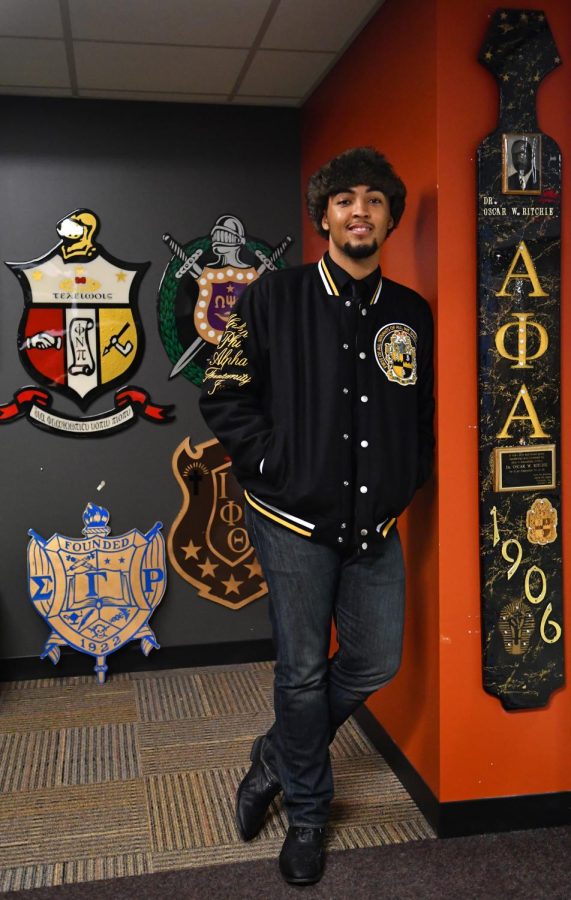Celebrating Black History Month: Q&A with Isaac Floyd
Alpha Phi Alpha president Isaac Floyd poses for a portrait in Oscar Ritchie Hall on Tuesday, Jan. 31, 2017.
January 31, 2017
In honor of Black History Month, The Kent Stater will be featuring Q&As with black student leaders throughout the month of February.
The Stater spoke with senior nutrition major and Alpha Phi Alpha Fraternity Inc. president Isaac Floyd regarding his position as a student leader at Kent State, and his views on being black in America.
KS: What is it like for you to be black in America, particularly with the current social and political climate?
IF: I think being black in America is perhaps as empowering as ever but also as challenging. It is empowering because in this time we are a part of a conscious movement. With our generation, like us or not, we have access to a lot more knowledge than generations before us that will help us succeed in the current global climate.
KS: What is it like being black at Kent State?
IF: My experience at Kent State has been interesting to say the least. Attending a PWI (predominately white institution) is kind of a preparation for the workforce, especially in my field of Nutrition Science, which is majority caucasian females. I probably won’t come across a lot of people who look like me. Attending Kent State has given me an opportunity to promote awareness to people outside of my cultural roots. While I’ve been here, the black community has been very vocal and has offered a lot of support. Although it can be challenging at times, I have enjoyed my experience here thus far.
KS: How did you become involved in your organization? How did you assume your leadership position?
IF: I constantly sought out mentors that had qualities that I would like to have. N.J. Akbar and Cason Brunt, who are also a part of Alpha Phi Alpha Fraternity Inc. mentored me. They carried themselves so well and they upheld such a good reputation; they were examples of the type of man that I wished to be. When I found out that they were Alphas, the choice was easy. After doing some research and discovering we are the first black fraternity – and had other honorable members like Martin Luther King – sparked my interest as well.
I think that we just decided that me being president was what was best for the group. I have leadership experience, as I previously was the president of BUS (Black United Students), a network that I work with on campus that would help us build additional connections, and I am a senior. Through the network that I work closely with, we will be able to build connections that will help my brothers even after I leave. It was time for me to step up and I have accepted the role.
KS: Do you think it is important for black students to take on leadership roles on campus?
IF: I think that it is very important for black students to take on leadership roles. In today’s competitive workforce having a degree is just not enough. It is important to set yourself apart from the rest, especially being a minority. Being in a position of leadership helps add to one’s personal wealth and opens opportunities. Since I’ve taken on leadership roles, I’ve realized a lot of personal growth.
KS: Who is someone black who inspires you or that you look up to?
IF: The Dean of the University College, Dr. Eboni Pringle is someone who I look up to and someone who really inspires me. It is inspirational that she is a woman of color in a leadership position.
Olivia Williams is the African-American student life reporter, contact her at [email protected].

























